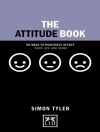In this book the author analyzes measures of consumer well-being. The three main, neoclassical measures of well-being are the compensating variation, the equivalent variation, and consumer’s surplus. The question is which of the measures of consumer well-being is the best. This book tackles the question, with a surprising outcome that is contrary to the main opinion in the literature. Prof ten Raa presents a test that measures must pass to track utility. The test will be used to sort measures in the remainder of the book. It will culminate in a variant of consumer’s surplus, which he calls the consumer’s index, and a generalization that applies to nonhomothetic demands. Variants of the consumer’s index are presented, including ones that are applicable to demand functions with income effects, even nonlinear ones. So-called broad measures of consumer well-being, such as the Human Development Index, will be encompassed.
Contents:
- Introduction
- The Theory of the Consumer in Microeconomics
- Hicksian Measures: Equivalent and Compensating Variations
- Marshallian Measure: Consumer’s Surplus
- Constant Elasticity of Substitution Functions
- Utility Tracking Measures of Well-being
- Price Indices
- The Consumer’s Index: Theory
- The Consumer’s Index: Applications and Extensions
- Conclusion
- Appendix: Human Development Index and Its Components
Readership: For researchers and graduate students who are interested to understand more about measures of consumer’s well-being.
Key Features:
- This book presents a critical review of measures of consumer economic well-being
- The book demonstrates clearly that a variant of consumer’s surplus is superior
- It includes coverage of broad measures of consumer well-being












